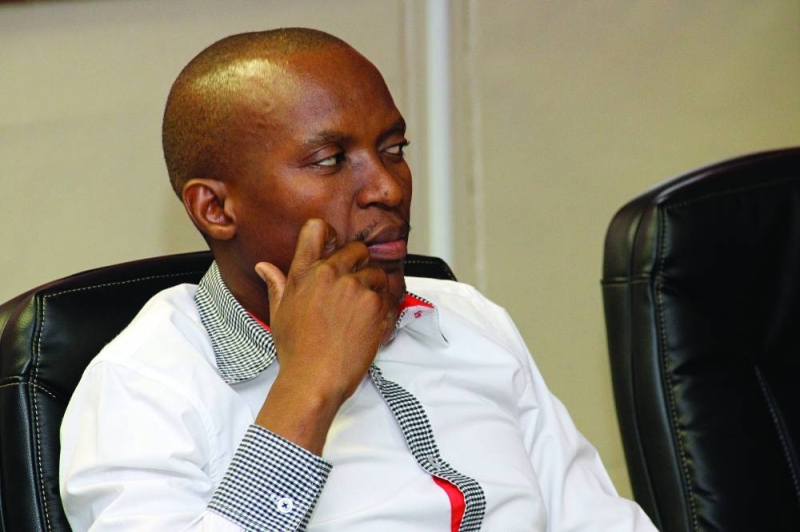Analysts dismiss newly formed BRP
Chakalisa Dube | Monday November 20, 2023 06:00


The latter is the BPF president while Khama is the party patron. It is almost certain that the BPF was fairly rattled by the departure of Butale and company. But the formation of the new party has been met with sheer doubt by some critics. Most of them have questioned the viability of forming the new party on account of numerous reasons.
Firstly, BRP detractors are adamant that the space for activism by opposition parties is saturated. That is, there are many opposition parties and most of them have the same fundamental ideologies or beliefs. To critics, the ideological similarities might mean that Butale must do the extra ordinary to convince people to associate with the BRP instead of other parties.
In short, the BRP needs a comprehensive philosophy to ensure its survival and relevance. The Botswana Labour Party (BLP) and the Alliance for Progressives (AP) are classic examples of opposition parties that have struggled to navigate the saturated political space since their formation and are increasingly losing connection with the masses. Critics also claim that the other challenge that might confront Butale and other members of the BRP is that they are slowly gaining a reputation of being nomadic politicians.
This proclivity of changing parties is very confusing to voters and they might ultimately retaliate by totally shunning the BRP. For opposition parties to play their central role of enhancing democracy and adjust to the dynamic political climate, they need vast resources. But there is enough evidence on the ground that opposition parties in the country greatly struggle to accumulate resources to fulfil their objectives. For this reason, Butale and his troops will have to come up with innovative strategies to raise sufficient resources to build some of their structures and turn the BRP into a likeable movement. Failure to do that, the BRP might struggle to assert itself to the voters. Failure to appeal to the voters means that the party will sink into oblivion.
Events that occasioned the formation of the BRP might also render the party an entity that is not worth joining to some. The BRP was formed following a prolonged court battle between Butale and a faction led by Reatile and Khama. Due to the above, some might perceive the party as an entity that was not founded on a solid ideology but sheer bitterness. In a nutshell, Butale and his followers might have good intentions, but they might just be dismissed as an establishment of bitter personalities.
This week, University of Botswana (UB) political science lecturer, Batlang Seabo also expressed doubts about the survival prospects of the BRP. “The BRP will confront serious political identity challenges and finding space within an already saturated political system as well as potential voters the party can appeal to. In terms of party ideology, it is apparent that by far, this remains a non-issue for voters in Botswana, no matter how different from other parties the BRP may claim to appear in the left-right ideological spectrum,” Seabo said. Seabo also posited that Butale might find it hard to endear himself to the voters. “Unfortunately, he does not wield the political charisma or influence so only time would tell if he can appeal to a sizeable electorate to either win some ward or constituency or even position BRP as a kingmaker in an election. The BRP might just as well suffer the same fate as other opposition offshoots and eclipse into political oblivion post 2024,” he said.
Another political analyst, Zibani Maundeni, who is also a political science lecturer at UB, notes that the emergency of the BRP highlights the limits of internal party democracy among local parties. “Many political parties are owned by their founding fathers who run them as personal fiefdoms. Serious disagreements are not solved democratically through elections and change of leadership; they're solved forcefully through expulsions and splits. So Butale has formed his own fiefdom where he can also expel or force others out of his own.
This is not helping the growth of the political parties. Rather, it encourages unworkable coalitions like the UDC. We have a long way to go,” he said. Just like Seabo and Maundeni, another political analyst, Adam Mfundisi says recent trends show that local political parties are not premised on ideological stance or position hence their continued fragmentation and proliferation. “The BRP, to be brutal, has no value addition to political consolidation. For it to survive, it should link with existing formations of similar political policies, otherwise it will be short-lived.
It seems, it has limited or no stronghold(s) where it can launch its political campaigns,” Mfundisi said. He added: “Opponents are likely to attack the party and its leadership on alleged inclination to the BDP and the DIS. Butale has been accused of being a DIS operative. Bitterness always reflect factionally created political parties. Most are not created on ideological positions.” Mfundisi is also of the view that Butale is yet to prove himself as a vibrant and charismatic leader, therefore he might struggle to shake the political landscape.
